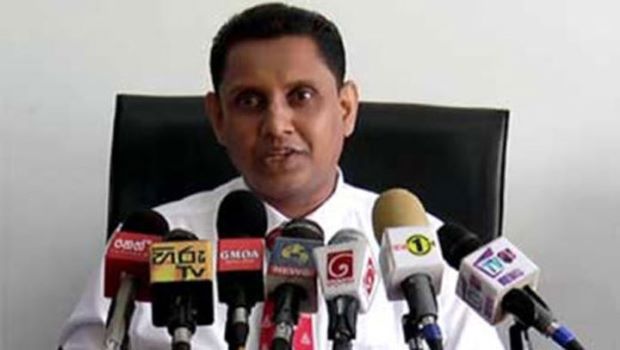GMOA criticizes plans to establish three private medical colleges
COLOMBO – Plans to establish three private medical colleges in Sri Lanka have drawn criticism from the Government Medical Officers Association (GMOA), a professional body of doctors that has historically opposed private medical education in the island nation.
GMOA secretary general Haritha Aluthge told reporters that Health Minister Keheliya Rambukwella’s announcement on Sunday (10) that he had approved a proposal to open three private medical colleges was an attempt to side-track the conversation on the challenges faced by the medical community.
“This is an unfortunate attempt to bury real solutions by bringing in false solutions. Even now, our medical faculties are run amidst great difficulty,” he said.
Minister Rambukwella said at a press conference on Sunday that the process of establishing the proposed three private universities has already begun.
“There are many students who qualify to study medicine. We have eleven universities now, but that is not enough.
“Our medical degrees are recognized worldwide. If there are universities either state or private being established to that standard, we can supply graduates from those universities to the world too,” said the minister.
In the United Kingdom, a Sri Lankan medical degree is greatly valued, he claimed.
The three universities have been approved on the condition that all academic staff are Sri Lankan and the institutes set aside a number of scholarships to students from poor families.
The GMOA, however, is less than enthusiastic.
Aluthge said that, including a recently established faculty at the Uva Wellassa University, Sri Lanka has 12 medical faculties currently in operation, which are expected to produce some 2,100 doctors in the next four to five years.
“Even the established medical faculties are run at great difficulty. The main reason is that there isn’t sufficient academic staff,” he said, noting that more and more academics are migrating.
“To maintain standards, there must be one academic staff member per seven medical students. Right now there isn’t one even for 15 students,” he said.
“The environment is not right for doctors to remain in the country. Their salaries and benefits are low. They have enough opportunities outside to work in a better environment. This talk [of private universities] has emerged against a background of a historic increase in the migration rates of doctors,” he said.
There are only 800 lecturers working in Sri Lanka’s medical faculties at present, said Aluthge, insisting that 1,600 to 1,700 are needed.
“At such a time, planning to expand medical education in the country without even a proper feasibility study, will pose a challenge,” he said.
Amid reports of increased brain drain, Sri Lanka President Ranil Wickremesinghe in August directed government officials to devise a strategy to seek compensation from foreign nations that recruit Sri Lankan doctors.
Wickremesinghe proposed that the matter be raised at World Health Organization (WHO) sessions and at other international fora.
“Can’t we make a case at the next WHO? Press it for other countries also. You’re taking our doctors. At least give us two more medical faculties,” said Wickremesinghe.
“I think together with the foreign ministry, you should make this case and we should press it at different fora,” he added.
The compensation mechanism can be similar to the Loss & Damage Fund that was established at the United Nations Climate Conference (COP27), the president said.
“Your people are leaving. That’s not our fault. England is producing so many; they’re not staying,” he said.
“Either change your system and keep your doctors or otherwise compensate us for that,” he added.
Wickremesinghe advised the officials present to discuss the matter with the Health Ministry secretary next week.
“If you get this established, you can get the engineering schools also,” he said.
A new Medical Act was also proposed at the meeting, to be formulated within six months with a view to addressing inadequacies in the existing Medical Ordinance.
-economynext.com



Comments are closed, but trackbacks and pingbacks are open.